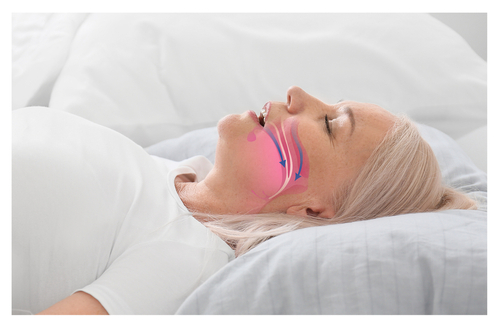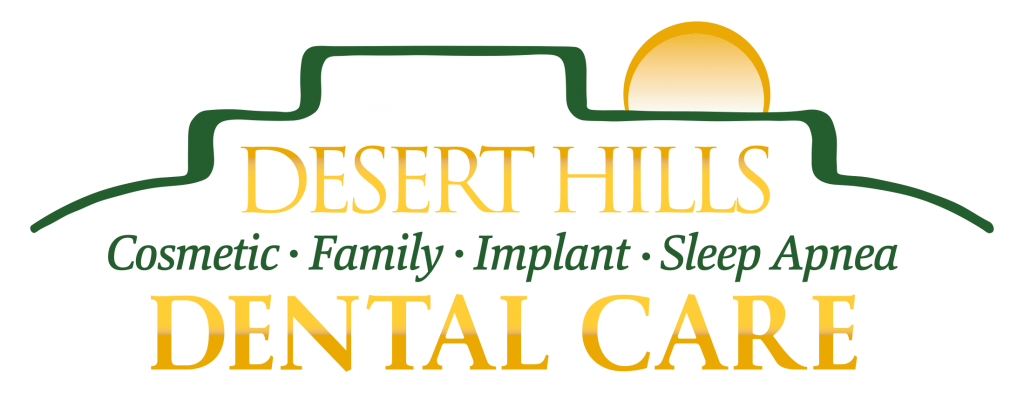The Hidden Dangers of Untreated Sleep Apnea
Sleep apnea is more than just snoring or a minor inconvenience; it’s a serious medical condition that, if left untreated, can lead to a host of health issues. At Desert Hills Dental Care, our Farmington, NM sleep dentist, Dr. Charles Schumacher understands the importance of diagnosing and treating sleep apnea to safeguard your health and well-being.
Our skilled team can help you explore the dangers of untreated sleep apnea, discuss various treatment options, and answer common questions to help you take the necessary steps toward better sleep and overall health. To learn more, contact our Farmington dental office by calling (505) 427-2936.

What is Sleep Apnea?
Sleep apnea is a sleep disorder characterized by repeated interruptions in breathing during sleep. These interruptions, known as apneas, can last for several seconds and occur multiple times throughout the night. The most common type is obstructive sleep apnea (OSA), where the airway becomes blocked, usually by the collapse of soft tissue in the back of the throat.
The Health Risks of Untreated Sleep Apnea
Untreated sleep apnea can lead to numerous health problems, some of which can be life-threatening. Some of the most significant risks, include:
Cardiovascular Issues
Sleep apnea puts a tremendous strain on the cardiovascular system. The repeated pauses in breathing lead to reduced oxygen levels in the blood, causing the heart to work harder. This increased strain can result in high blood pressure, heart attacks, strokes, and even heart failure. In fact, people with untreated sleep apnea are at a higher risk of developing cardiovascular diseases than those without the condition.
Daytime Fatigue and Cognitive Impairment
One of the most immediate effects of sleep apnea is chronic daytime fatigue. The constant interruptions in sleep prevent the body from reaching deep, restorative sleep stages. This can lead to excessive daytime sleepiness, difficulty concentrating, memory problems, and even an increased risk of accidents at work or while driving.
Metabolic Disorders and Weight Gain
Sleep apnea is closely linked to metabolic disorders, including insulin resistance and type 2 diabetes. The lack of quality sleep disrupts the body’s ability to regulate blood sugar levels and metabolism. Additionally, sleep apnea can contribute to weight gain, creating a vicious cycle where excess weight exacerbates the severity of sleep apnea.
Mental Health Issues
The impact of sleep apnea extends to mental health as well. Untreated sleep apnea can contribute to depression, anxiety, and mood swings. The chronic fatigue and sleep disruption associated with the condition can make it difficult to cope with daily stresses, further affecting mental well-being.
Treatment Available at Desert Hills Dental Care
At Desert Hills Dental Care, we offer oral appliances to help you manage sleep apnea effectively:
Oral Appliances
For those who find CPAP therapy uncomfortable or who have mild to moderate sleep apnea, oral appliances are an effective alternative. These custom-made devices are worn in the mouth like a sports mouthguard. They work by repositioning the jaw and tongue to keep the airway open during sleep.
Frequently Asked Questions
How is sleep apnea diagnosed?
Sleep apnea is diagnosed through a sleep study, which can be performed in a sleep lab or in the comfort of your own home. During the study, your breathing and other sleep-related activities will be monitored. Based on your results, your sleep dentist will be able to determine the best plan of action.
What should I do if I think I have sleep apnea?
If you suspect you have sleep apnea, it is important to speak with your doctor and undergo a sleep study to get a proper diagnosis. Early treatment is crucial to minimize the potential health risks associated with untreated sleep apnea. The longer you wait, the greater the risk for additional medical issues.
What is the treatment for sleep apnea?
The treatment for sleep apnea varies depending on the severity of the condition and the individual’s specific needs. Common treatments include continuous positive airway pressure (CPAP), oral appliance therapy, lifestyle changes (such as weight loss and avoiding alcohol), and surgery in some cases. Your sleep dentist will recommend the proper sleep apnea treatment for your specific needs.
Take Action Against Sleep Apnea Today
Untreated sleep apnea is a serious health concern, but it doesn’t have to control your life. If you suspect that you or a loved one may be suffering from sleep apnea, contact Desert Hills Dental Care by calling (505) 427-2936 to schedule a consultation. Our team is dedicated to providing personalized care and effective treatment options to help you breathe easier and enjoy restful, restorative sleep.
